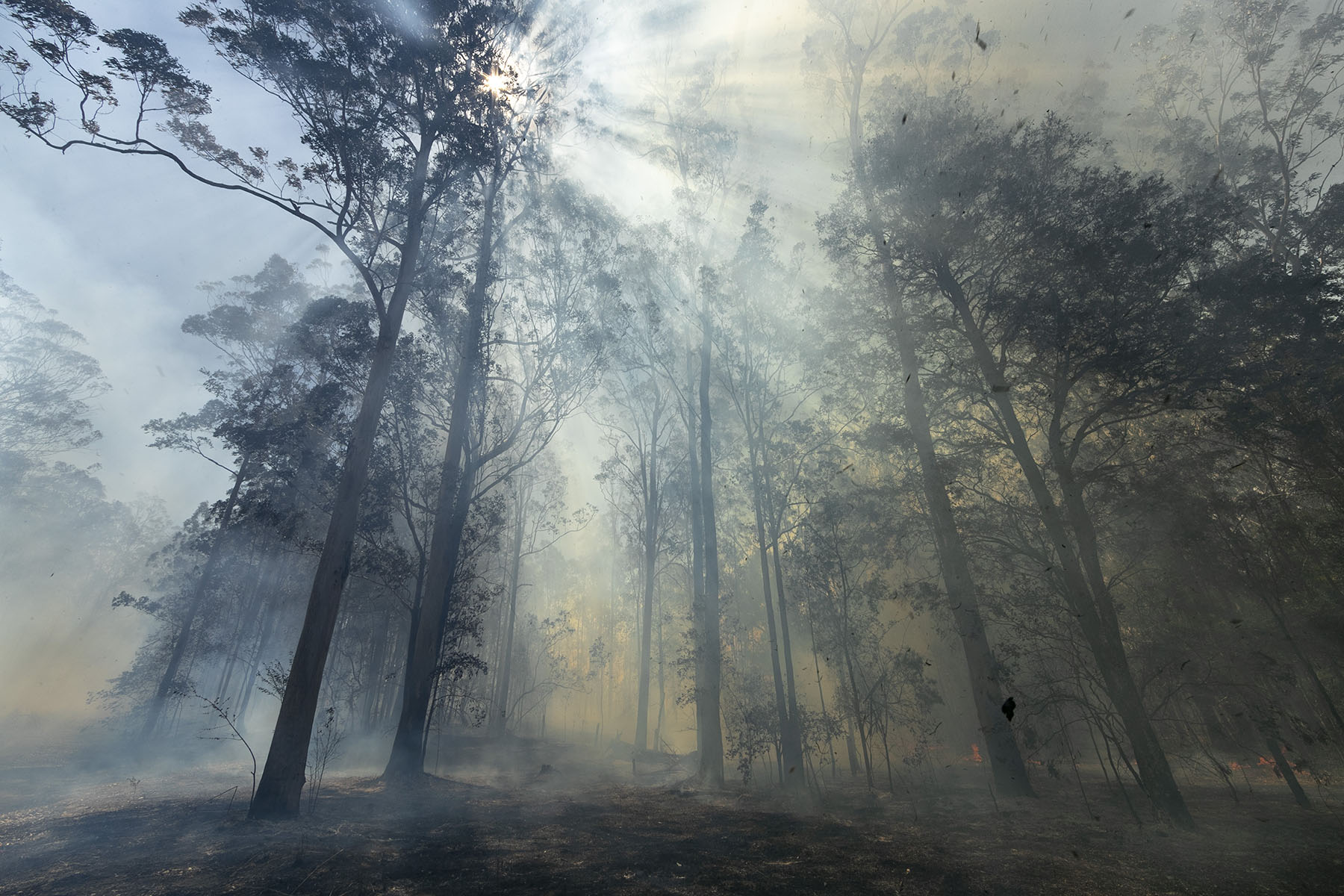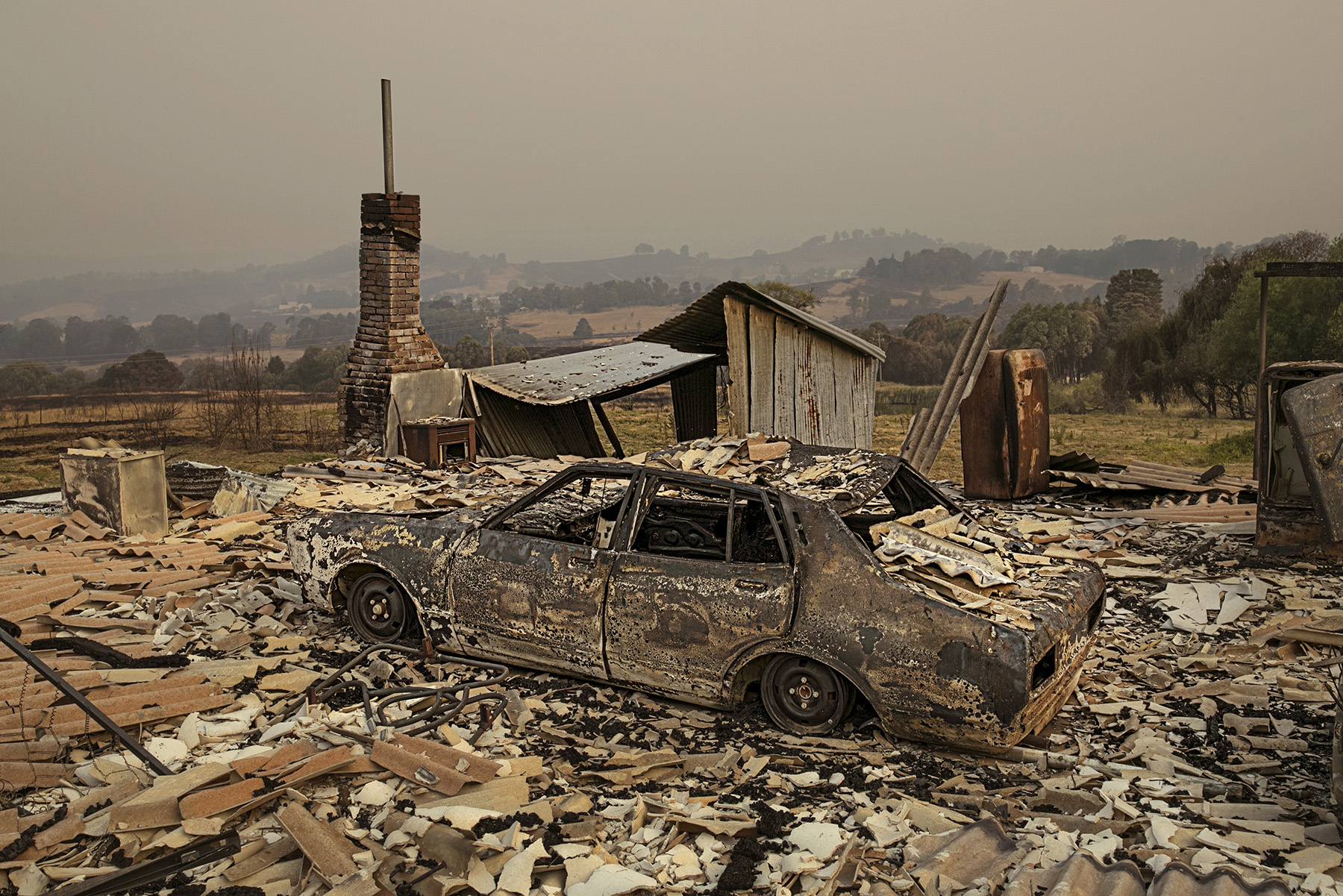Are We Dead Yet? is a confronting photographic exhibition opening at aMBUSH Gallery in Canberra this August (6), that shifts the conversation from ‘Is climate change happening?’ to ‘Is it too late?’
This in-depth artistic documentation of the effects of climate change on Australia is part of a long-term project by renowned photographer and intrepid world traveller Stephen Dupont.
The exhibition is curated and presented by aMBUSH Gallery and will be on display at their Canberra space, located at Kambri at ANU.
Opening night is Thursday, 6 August from 6:00-8:00pm, with drinks from Capital Brewing Co. and Lerida Estate, and with live music from DJ Feraude.
To attend the exhibition opening, guests will need to pre-register via Humanitix as the capacity is limited.
The exhibition will then run until 14 September, showing daily from 10am-6pm weekdays and 12pm-5pm on weekends. Admission is free and all artworks are for sale.
Visit www.ambushgallery.com for more information.

Image by Stephen Dupont, from the exhibition Are We Dead Yet?
Shot over the past few years in locations across New South Wales, Queensland, Victoria and Tasmania, the 20 works on show expose an intriguing and often heartbreaking display of the landscape and people caught in the midst of climate change events.
Inspired by his young daughter Ava – a climate activist – Dupont’s discussions about environmental issues inevitably end up at the big question: is it possible to save the planet, or have we pushed Mother Nature to the brink of extinction?
For Are We Dead Yet? Dupont wanted his images to reflect both the consequences of our current path as well as signal the urgency to find new ones, while motivating viewers to question their roles and responsibilities in this real-time catastrophe.
As he explains, “I’m looking at this as an artistic kind of canvas – a way to view the tragedies and the trauma of the earth, but to find some sort of beauty in it as well, in the colour palette of the landscape. And highlighting the catastrophe so it comes out in a way that will hopefully please people in terms of what they’re looking at but then go much deeper – getting them to understand that these photographs might be beautiful, but if you look at them really closely, there’s a very deep message in all of them and there’s a real sense of urgency in what I’m showing.”
From the solitary figure swimming in the ocean during a dust storm, to a flooded football ground, or the charred bushland ravaged by fire and the parched ground of drought-stricken regions, this photographic journey traverses much of Australia, telling striking visual stories of suffering, confusion, anger and fear.
While the impacts of climate change are vast and growing around the globe, Australia is considered the climate crisis ‘litmus test’: what happens here will ultimately determine the outcomes for the rest of the world.

Image by Stephen Dupont, from the exhibition Are We Dead Yet?
“The problem is we’re living in a world of lies and blackmail … we are being led astray in many ways, and I think if you just look at nature, it’s telling us that! I think that [nature] is our most objective journalist. We are going to be the template for the whole planet, so it’s really interesting to look at what’s happened in the last two to three years with the fires, the floods, the drought and now with the mice … it’s just one disaster after another!” Dupont exclaims.
The potent effects of climate change are causing an increase in the number of natural disasters such as floods and bushfires.
As Dupont describes, “The Australian ‘Black Summer’ bushfires of 2019/20 are embedded in my memory like none before. A long drought, a sunburnt landscape waiting to ignite. It caught the nation by surprise. In swept the westerly winds and blistering temperatures, and then the fires. From Queensland to Victoria, the coastline was engulfed by hundreds of raging infernos. We are used to fires in this country, but I couldn’t recall anything on this scale and with this ferocity.”
Nature responds to such extreme events by either adapting or becoming extinct, and Dupont believes that we in turn must react by accepting the evidence in front of us, educating ourselves, and committing to change our way of life.
“We’re not going to have a planet to live on if we don’t do it … that’s the bottom line. It’s really the second before midnight, and if we don’t do something, it’s a ticking time bomb,” Dupont urges.


